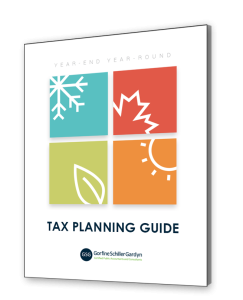A Roth IRA is an individual retirement account offering a major tax benefit – tax and penalty free withdrawals at any time. While there is no immediate tax deduction for contributions with a Roth IRA, your earnings will increase tax-free.
However, a Roth IRA does not apply to everyone. In order to open or convert to a Roth IRA, you must meet the necessary eligibility requirements. It’s also important to recognize if a Roth IRA is the best retirement account based on your filing status – both now and when it comes time to retire.
In the following blog post, Vicki Hitchcock answers the difficult questions surrounding a Roth IRA and the many differences of a traditional IRA, Roth IRA, and Roth 401(k).
When should someone consider contributing to a Roth IRA if they aren’t already maximizing tax-deferred contributions?
It really depends on how they plan their lives. If they plan to have their mortgage paid before retirement, for example, Roth is the way to go. The retiree won’t have a mortgage interest deduction on their income taxes and tax-free income would be beneficial.
Anyone with earned income can contribute to a Roth IRA (even after retirement age) up to certain limits $5,500 combined with traditional IRA contribution ($6,500, if you’re over 50) with income limits ranging from $120,000 to $189,000 depending on your filing status. If a young person is eager to invest their summer earnings from their first job, they can contribute up to the limit or the amount of their earned income, whichever is smaller.
In another example, if the retiree — or, for that matter, pre-retiree — wants to be able to pass on retirement savings to heirs income tax-free, Roth can help with that in a way a 401(k) cannot.
Remember, too, withdrawal of Roth money to fund a project (for example, purchase of a first home) takes on no tax responsibility because the tax is already paid. Withdrawing from a 401(k) brings with it a tax responsibility.
Also, tax brackets usually get lower in retirement, but there is no way to predict what tax changes will come in our future. Making after-tax Roth contributions early on can provide you with retirement savings with taxes already paid, leaving you less worried during retirement years.
Aside from contribution limits, what are some big differences between Roth IRAs and Roth (401k)?
One difference is that anyone can set up a Roth IRA through a bank, insurance company or other financial institution, where as to participate in a Roth 401(k) the person would need to be eligible to participate in an employer sponsored 401(k) Plan. The contribution limits for the Roth 401(k) Plans are higher, and the employer may make matching contributions to the employees’ retirement account on their Roth (401k) contributions, which is tax advantageous to employers as an ordinary tax-deductible business expense. Responsibility for paying the tax on that contribution, then, passes on to the employee, just as it would in a traditional 401(k). Age limits are a bit different in a Roth IRA compared to a Roth 401(k) that they require minimum distributions of asset balances at age 70 ½. Roth IRA assets are never required to be withdrawn.
Are there differences mechanically in setting up a Roth vs. a traditional IRA?
Most financial providers that offer assistance with the set up of a traditional IRA are familiar with, or will offer the same services for setting up Roth IRAs. The important thing for the person is deciding which account is right for their needs and goals.
When should employers consider adding a Roth feature to their 401(k)? Does this typically add to administrative costs?
As salaries mount with the success of a small business, adding a Roth feature to the 401(k) can help employees maximize their retirement portfolio as those salaries meet 401(k) limits. A Roth can continue to absorb retirement savings (but this time after-tax), thus building pre-tax and after-tax funds for retirement. Admin costs could grow because there could be a little more work with the record keeping, but that would depend on how much participation increases in the plan from adding the new option.
Because of income limitations for Roth IRAs, who are those accounts ideal for?
These accounts are ideal for individuals making less than $120,000, or married couples filing jointly that make less than $189,000, who are interested in planning for long-term financial flexibility. Most young people, when they are starting out during college and shortly thereafter, are going to meet the income requirements. However, they may not meet the requirements of their employer-sponsored plan because of age, service time or number of hours worked, (i.e. part time). Roth IRAs are a good option to get your retirement income started. The earlier you start the more it will grow!
Choosing the right retirement account now is important in order to have a financially secure future. If you have any questions about which retirement account is best for you, contact us – or, if you need assistance choosing between a traditional IRA or a Roth IRA, use our IRA calculator for quick and useful tips.
Categories: Audit & Accounting, Employee Benefit Plans




